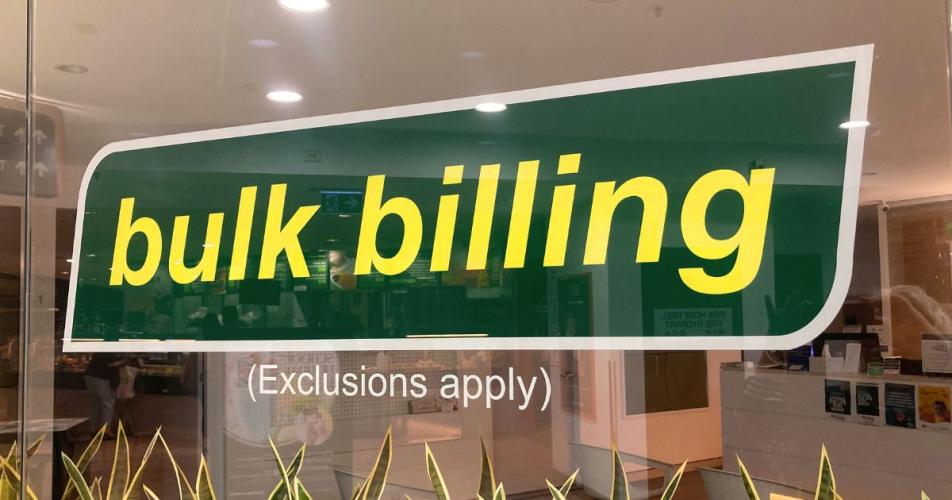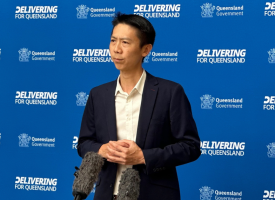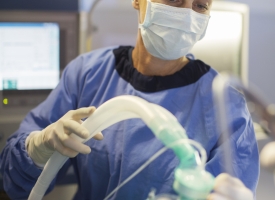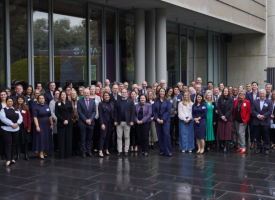Metro areas not feeling effects of bulk billing incentives
The increase in bulk billing rates will help keep people well and out of hospital, but more needs to be done to ensure this continues and everyone has equitable access to primary healthcare, AMA Queensland President Dr Maria Boulton said.

Transcript: AMA Queensland President, Dr Maria Boulton, ABC Sunshine Coast, Friday 2 February 2024
Subjects: Bulk billing incentives
SARAH HOWELLS: The near impossibility of accessing a GP without a gap fee on the Sunshine Coast has been a sore point here for a while, so you might have felt a bit excited at the news yesterday that bulk billing rates nationwide are increasing since a tripling of the Commonwealth's Medicare incentives kicked in last November. But a 2.1 per cent increase in the number of bulk billing GPs nationwide isn't exactly huge, and that increase from a figure of near zero here on the coast would still leave us with, well, near zero.
Maria Boulton is the President of the Australian Medical Association Queensland. Any increase in the numbers is good of course but is this something people on the Sunshine Coast would even be noticing when they go to their GP?
DR MARIA BOULTON: Of course we welcome any funding into primary care, we know how far behind it is. The reality is that most of the Sunshine Coast is classified as a metropolitan area similar to Brisbane. Yesterday’s Government figures that show an increase in the bulk billing rate also shows that in areas like the Sunshine Coast, the bulk billing rate has only gone up by 1.4 per cent.
You also have to remember that what they did was triple the bulk billing incentive. This is not the Medicare rebate, which is that rebate that patients have access to when they see their GP. It's the smaller bulk bill incentive that some people are eligible for if they're under the age of 16, if they’re on a Commonwealth concession card, if they receive a certain type of consultation, and if they are bulk billed. So really, 16 million Australians don't qualify for that, and that is why the effect hasn't been felt.
SARAH HOWELLS: Right, because regional Australia broadly seems to have had a bigger increase in bulk billing rates than the national average, 4 per cent for regional centres. Is that something that we're likely to see here on the Sunshine Coast?
DR MARIA BOULTON: It depends on the classification. We know that the bulk billing incentive basically increases the further away you are from an urban area. For example, in Brisbane the bulk bill incentive increased to about $20 versus in some more remote areas where it increased to about $40. The Sunshine Coast is mostly defined as metro, so the increase wouldn't be as much. That's why the community in the Sunshine Coast wouldn't be benefiting as much as someone in a remote area.
SARAH HOWELLS: Right, interesting. I guess as we say, any anything better is better, but a bit tricky when it's not helping us that much on the coast. A lot of people listening might be thinking – bulk billing would be nice, but it's a secondary issue next to actually getting into a GP in the first place. Does this help the availability of GPs?
DR MARIA BOULTON: I agree with the listeners, I think everyone deserves the right to have access to their GP. We know that GPs keep people well and out of hospital. We all have access to public hospitals, and yet, when it comes to preventive care and primary care, that access is not something that is granted freely by the Government. It makes it really hard for people to access those services at some times.
The other thing we've seen is a drop in the number of doctors who want to become GP specialists, and that's why we're calling on the State Government to introduce grants similar to what Victoria’s State Government has done, to hopefully increase the number of people going into GP specialty training.
It is areas outside of cities that really rely on their GPs. We know that GPs in some areas deliver babies, provide emergency care, provide anaesthetics, and during floods they always make sure that they can open, even if it's in a boat shed like what happened in Cairns, to ensure that they continue to service the community. For some reason, it is primary care that has been severely neglected by the Government. It's to their own peril because that means that more people end up needing hospital care, which is much more expensive. Above all, we need to ensure that we're doing everything possible so that people can stay healthy and out of hospital.
SARAH HOWELLS: Absolutely. So, grants for GP specialist training, more government support, what else needs to happen, Maria?
DR MARIA BOULTON: The Government needs to look at the Medicare rebates. We know that every Australian is entitled to a Medicare rebate when they see their GP. For those who aren't eligible for the bulk bill incentive, for those who don't have a Commonwealth concession card, and are finding it hard to pay for things like medicines, fuel and food, it's really important for those rebates to increase so that the out-of-pocket fee is not as much.
Those Medicare rebates have been frozen for a long time, last year they only went up by 2 per cent. When you look compared to inflation, which was 7 per cent, it's not really good enough. Looking at those Medicare rebates, making sure that they increase as they should have been increasing since the start of Medicare 40 years ago, but also ensuring that people who also need longer appointment time with their doctor - for example, people with mental health issues and complex chronic diseases - get rebated as much as people who just need a six minute appointment with their GP. At the moment, if you come in for a mental health issue and you book a longer appointment, your rebate is much lower per minute than somebody who perhaps comes in for just a script. It's essential that those people also get rebated more, because we need to make sure that those services remain affordable.
As much as GPs hate charging an out-of-pocket fee, there's no choice. We either have to do that to pay for our costs, or close our doors, sadly. We do everything possible to subsidise as many people as possible, but we just can't continue doing it.
SARAH HOWELLS: Maria Boulton, thank you so much for your time this morning.



